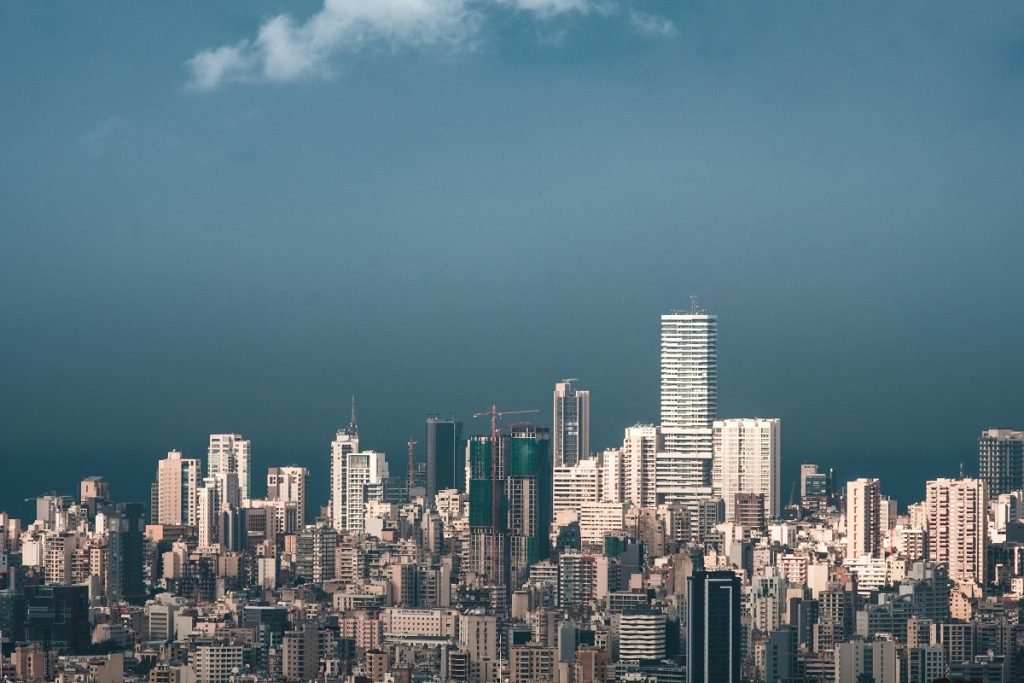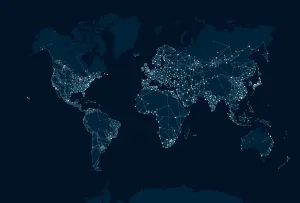As we look at the marquee names shaping the Middle Eastern corporate landscape, one sector understandably looms largest – energy.
Middle East Money Makers: Top Companies to Watch. When most people think of the business heavyweights of the world, massive American tech companies like Apple, Microsoft, and Amazon probably come to mind first. Or maybe Chinese juggernauts like Tencent and Alibaba. But increasingly, a new crop of corporate titans is emerging from the Middle East – a region not traditionally associated with global business dominance.
From energy leviathans to rapidly growing retail, telecom, and logistics players, Middle Eastern firms are flexing their financial muscles and joining the ranks of the world’s most valuable companies. Their ascent has been driven by a potent combination of hydrocarbons wealth, strategic diversification by national economies, and a youthful population ready to embrace new products and services.
As we look at the marquee names shaping the Middle Eastern corporate landscape, one sector understandably looms largest – energy. The region’s vast petroleum and natural gas reserves have minted a number of outrageously profitable firms over the decades. But the story is rapidly evolving, with the emergence of ambitious conglomerates spanning an array of new industries.
Let’s take a look at some of the titans leading the way:
Saudi Aramco ($1.9 Trillion Market Cap)
Pulling in over $160 billion in profits during 2022 alone, Saudi Aramco is not just the world’s largest and most valuable energy company, but the most valuable company on the planet by market capitalization. The state-owned Saudi behemoth has been fueled by high oil prices and low production costs, continuing to churn out massive profits despite global efforts to transition away from fossil fuels.
Aramco’s upstream operations are anchored by control over Saudi Arabia’s vast oil and gas reserves (the largest globally) and low-cost extraction. But the firm has been steadily expanding its downstream portfolio too, acquiring assets across refining, petrochemicals, and even solar energy. It’s a diversification strategy designed to extend Aramco’s dominance well into a potential post-oil future.
Saudi Aramco is so flush with cash that it has started taking stakes in major domestic companies outside its core business too, like the telecom giant stc. With the Saudi government still retaining around 95% ownership, Aramco represents a key economic pillar and investment vehicle for the Kingdom as it implements its ambitious Vision 2030 reform program.
Qatar Energy ($1.2 Trillion Market Cap)
Like Aramco, Qatar Energy (formerly Qatar Petroleum) is a state-owned juggernaut in the hydrocarbons arena, overseeing exploration, production, and sales of the tiny nation’s oil and gas riches. Those fossil fuel assets have been a cash cow for years, but resource constraints have limited Qatar Energy’s growth compared to Saudi Aramco’s seemingly bottomless reserves.
Still, Qatar Energy has managed to amass a market value over $1 trillion, buoyed by soaring energy prices and the startup of lucrative new gas projects like the massive North Field expansion. It owns majority stakes in joint ventures spanning the entire hydrocarbon value chain, from LNG terminals to refineries and petrochemical plants.
Qatar Energy is also intent on going green, with plans to develop a whopping 25% of its vast tenure holdings for solar energy projects. In a strategic shift last year, the firm placed all its international upstream assets into a new subsidiary, allowing its domestic upstream business to focus singularly on developing Qatar’s vast resources.
ADNOC ($750 Billion Market Cap)
The Abu Dhabi National Oil Company, or ADNOC, is taking a more decentralized approach as it transformers into a diversified energy conglomerate. Rather than a single monolithic company, ADNOC consists of multiple publicly listed subsidiaries and joint ventures, giving outside investors the opportunity to buy direct stakes across the entire value chain.
ADNOC’s crown jewel is its Murban crude oil production, one of the world’s most prized sources of energy thanks to its low sulfur content. But the group also encompasses major operations in gas, downstream refining, shipping, and more. In recent years, ADNOC has pushed hard into petrochemicals too, forming joint ventures with international players.
All told, consultancy Brand Finance estimates the various ADNOC group entities were worth roughly $750 billion in 2022, making it one of the world’s most valuable brands. ADNOC too is working to prepare for a post-oil world, revealing plans in 2020 to become a major exporter of hydrogen and other cleaner energy sources.
Saudi Arabian Mining Company ($500 Billion Market Cap)
You might assume the most valuable mining company in the world is a diversified Western giant like BHP or Rio Tinto. But the Saudi Arabian Mining Company, better known as Ma’aden, has emerged as the heavyweight champion with a market cap around $500 billion in 2022.
Majority owned by the Saudi government, Ma’aden was formed just a few decades ago to help catalyze the Kingdom’s mineral resources sector and diversify its oil-centric economy. It has grown into a sprawling mining and metallurgical conglomerate with integrated operations spanning gold, copper, aluminum, phosphates, and more.
Ma’aden aims to be a major player in the global race for critical battery minerals too, developing projects to produce nickel, lithium, and other metals essential for electric vehicles. Recent high commodity prices have turbocharged Ma’aden’s revenue and profits, accelerating its ambitious expansion across raw materials crucial for both old-school manufacturing and new age clean technologies.
stc ($80 Billion Market Cap)
Headquartered in Riyadh, stc (formerly Saudi Telecom Company) has evolved into the Middle East’s largest telecoms operator by market value – and one of the most valuable telco brands worldwide. The company got its start in 1998 as Saudi Arabia’s first privatized telecoms provider, swiftly gaining dominance in mobile and broadband services across the Kingdom.
Since then, stc has rapidly expanded abroad through a string of international acquisitions and joint ventures spanning the Middle East, North Africa, and even Southeast Asia. It now provides telecom services to over 200 million subscribers across 9 countries, generating revenues north of $16 billion annually.
But stc ambitions reach far beyond traditional telco services these days. It has aggressively invested in new verticals like cloud computing, cybersecurity, Internet of Things, and digital entertainment. Key acquisitions and stake holdings have included video streaming platform Infulene, cloud storage firm Solutions by stc, cybersecurity outfit DUTO, and more. stc is aiming to position itself as a regional technology heavyweight and digital transformation enabler through these next-gen services.
Emaar Properties ($12 Billion Market Cap)
While state-owned energy titans dominate the top ranks, plenty of dynamic and well-capitalized private corporations are flexing their financial muscles too. Perhaps none more so than Emaar Properties, the Dubai-based real estate development giant founded in 1997 by the government of Dubai.
Originally formed to manage property and tourism projects for the emirate, like the Burj Khalifa skyscraper and Dubai Mall, Emaar has rapidly grown into a multinational powerhouse. It has delivered over 27,500 residential units in Dubai and thousands more in other markets like Saudi Arabia, India, and Egypt. Emaar’s commercial portfolio spans malls, hotels, and hospitality assets worth tens of billions of dollars.
Emaar has big ambitions to extend its real estate platform globally. It has already kicked off major projects in Europe, Asia, and beyond, with a development pipeline valued at over $40 billion as of last year. Not content to be a pure real estate play, Emaar has also invested heavily in new verticals like entertainment, fashion, and financial services. Through a joint venture with Beijing Daxing International Airport, it is even building a sprawling $27 billion airport city project in China.
DP World ($12 Billion Market Cap)
Based in Dubai, DP World has rapidly grown into a logistics and maritime transportation goliath since its founding in 1972. Today it is a multinational corporation managing the operation of over 80 marine terminals and inland cargo facilities across six continents. DP World has deployed major capital into developing its global shipping and transportation infrastructure, including ports, economic zones, logistics hubs, and more.
The company has been on a tear acquiring assets and growing organically over the past decade. Major terminals have been brought into the fold everywhere from Canada and the UK to India, Somaliland, and beyond. Deep cash reserves, excess capital, and a widely-traded stock currency have enabled DP World to supercharge its expansion.
Looking ahead, DP World wants to be more than just a port operator. It aims to position itself as a holistic logistics provider, driving efficiencies across global multimodal supply chains through automation, data & analytics, and groundbreaking tech solutions. Acquisitions in emerging fields like autonomous truck fleets are part of this strategic shift. So is DP World’s new “Boxbay” logistics platform, representing a $3 billion investment to reshape seaport procedures through automation.
Emirates Group ($29 Billion Revenue)
While not a publicly traded firm, Emirates Group represents one of the most recognizable and valuable brands to emerge from the United Arab Emirates. The Dubai-based aviation holding company encompasses the iconic Emirates airline along with subsidiaries involved in air services, travel, tour operations, and more.
Founded in 1985 with backing from the royal family, Emirates has rapidly grown into one of the world’s largest airlines by revenue and destinations served. From its ultra-modern hub at Dubai International Airport, Emirates deploys a massive fleet to shuttle passengers across six continents. It is renowned for its premium cabin services, amenities, and customer experience.
But Emirates is far more than just an airline these days. Through its dnata subsidiary, it has built a global air services operation handling ground handling, cargo, catering, travel services and more across over 35 countries. Other divisions like Emirates Leisure Retail run duty-free operations and event management. Majority-owned by the Dubai government, Emirates Group has served as a powerful catalyst for the Emirate’s role as a global aviation and logistics nexus.
Etisalat ($45 Billion Market Cap)
Headquartered in the UAE, Etisalat is one of the world’s largest telecommunications services and operations corporations. Originally founded in 1976 as a monopoly telecom provider in the UAE, the company was privatized in stages through public offerings in the early 2000s. While it still maintains majority government ownership, Etisalat has been publicly traded since 2012.
Today Etisalat provides mobile and fixed telephony, internet, digital TV and ICT managed services across 16 countries in the Middle East, Africa, and Asia. It serves around 156 million customers across both consumer and enterprise segments, generating over $13 billion in annual revenues. Major international markets include Saudi Arabia, Egypt, Pakistan, and several others.
Etisalat hasn’t just been content with traditional telecom services though. Over the past decade, it has invested heavily into nascent technologies and digital verticals well beyond its core connectivity business. This includes cloud computing, cybersecurity, Internet of Things, artificial intelligence, and more. Etisalat aims to be the primary digital transformation enabler across its geographic footprint through these future-focused services.
The Rise Continues
The juggernaut companies profiled above represent just a small sampling of the rapidly growing corporate presence the Middle East is developing on the global stage. Flush with natural resources wealth and determined to diversify their economies, nations across the region are cultivating dynamic national champions spanning industries as diverse as logistics, finance, mining, manufacturing, and technology.
Thanks to robust population growth and an increasingly educated youthful workforce, domestic markets are booming too. By 2030, the Middle East is projected to have a consumer spending power of over $8.3 trillion according to the Brookings Institution. That surging demand is catalyzing the rise of major regional brands operating in retail, ecommerce, fintech, and other consumer sectors primed for massive growth.
As economic diversification strategies like Saudi Vision 2030 take root, we are likely to see a new wave of Middle Eastern titans emerge as privately-owned companies spin out of industries previously dominated by state firms. Tech unicorns like STC subsidiary Geidea, ride-sharing platform (acquired by Uber), and e-commerce leader Noon.com are just the tip of the iceberg.
Of course, the Middle East’s economic ambitions aren’t without challenges, from income inequality to over-reliance on imported labor to political instability in some nations. But the momentum of expanding private sectors, government privatization initiatives, and vast investment funds cannot be denied. The 21st century may very well see the rise of the Gulf nations as an increasingly pivotal hub of global commerce and corporate dominance.




